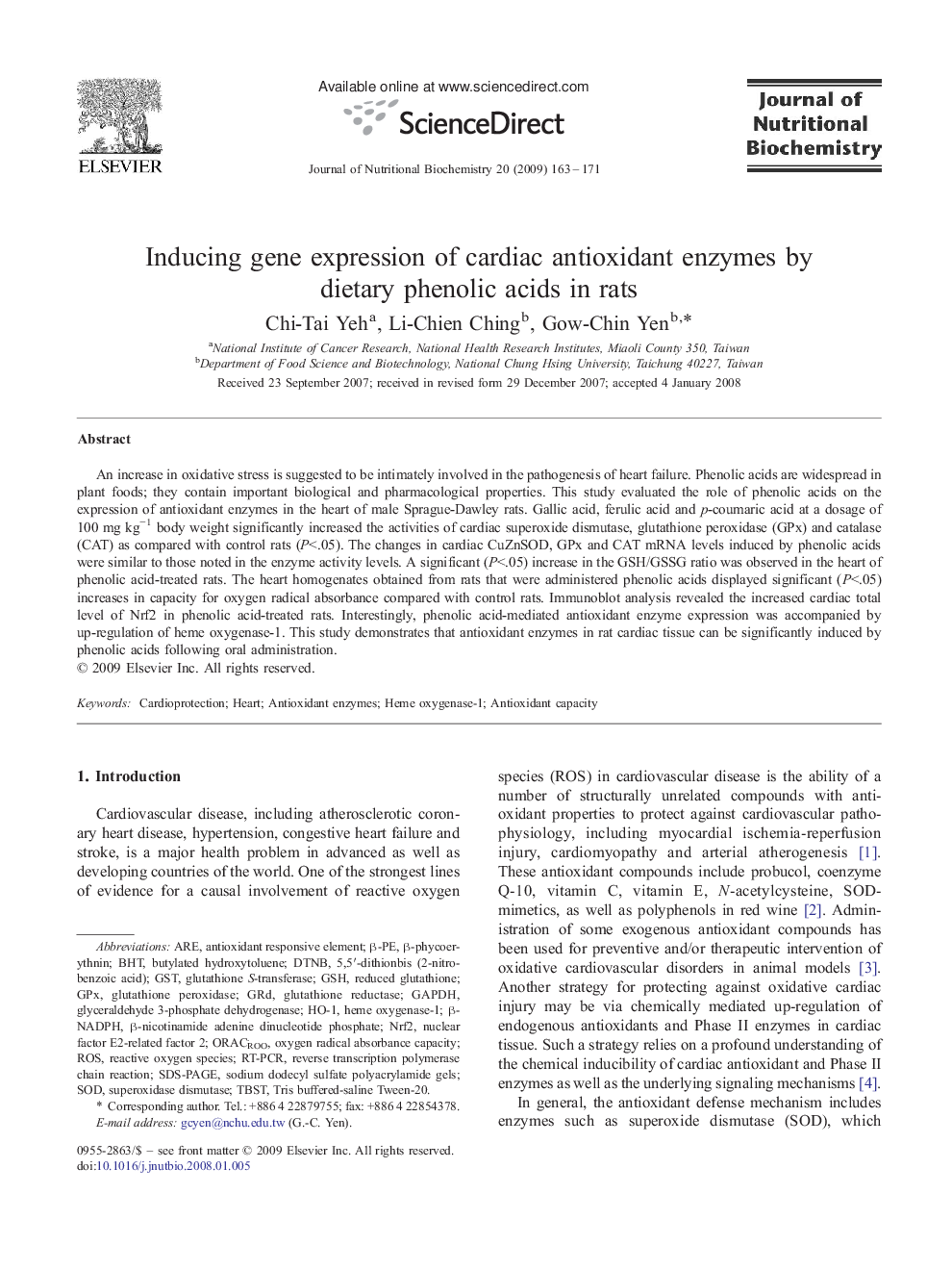| Article ID | Journal | Published Year | Pages | File Type |
|---|---|---|---|---|
| 1991008 | The Journal of Nutritional Biochemistry | 2009 | 9 Pages |
An increase in oxidative stress is suggested to be intimately involved in the pathogenesis of heart failure. Phenolic acids are widespread in plant foods; they contain important biological and pharmacological properties. This study evaluated the role of phenolic acids on the expression of antioxidant enzymes in the heart of male Sprague-Dawley rats. Gallic acid, ferulic acid and p-coumaric acid at a dosage of 100 mg kg−1 body weight significantly increased the activities of cardiac superoxide dismutase, glutathione peroxidase (GPx) and catalase (CAT) as compared with control rats (P<.05). The changes in cardiac CuZnSOD, GPx and CAT mRNA levels induced by phenolic acids were similar to those noted in the enzyme activity levels. A significant (P<.05) increase in the GSH/GSSG ratio was observed in the heart of phenolic acid-treated rats. The heart homogenates obtained from rats that were administered phenolic acids displayed significant (P<.05) increases in capacity for oxygen radical absorbance compared with control rats. Immunoblot analysis revealed the increased cardiac total level of Nrf2 in phenolic acid-treated rats. Interestingly, phenolic acid-mediated antioxidant enzyme expression was accompanied by up-regulation of heme oxygenase-1. This study demonstrates that antioxidant enzymes in rat cardiac tissue can be significantly induced by phenolic acids following oral administration.
